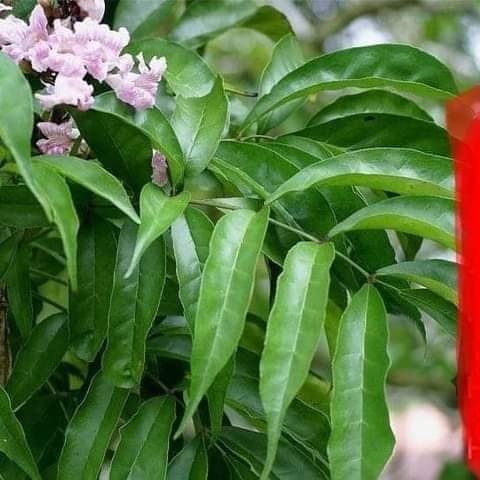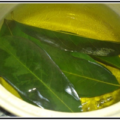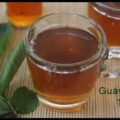
Newbouldia commonly known as ewe Akoko among the Yoruba people of west Africa, Aduruku by the Hausa people and Ogirisi by the Igbo people, is a genus of plants in the family Bignoniaceae native to Africa.
It is popularly known as the tree of life or fertility tree in Nigeria. The root and leaves are used in the treatment of diseases such as fever, headache, convulsion, epilepsy and manic disorders. The tree has a wide distribution across West and Central Africa were it is often planted as a boundary marker. It also has various medicinal uses.
What is fertility?
Fertility is about the ability to get pregnant. More than 8 out of 10 couples where the woman is aged under 40 will get pregnant within one year if they have regular unprotected sex. More than 9 out of 10 couples will get pregnant within 2 years.
Regular, unprotected sex means having sex every 2 to 3 days without using contraception. You don’t need to time having sex only around ovulation. Having vaginal sexual intercourse every 2 to 3 days will give you the best chance of getting pregnant.
Infertility
The terms subfertility and infertility are often used interchangeably, but they aren’t the same. Subfertility is a delay in conceiving. Infertility is the inability to conceive naturally after one year of trying. In subfertility, the possibility of conceiving naturally exists, but takes longer than average.
Can Ewe Akoko Increase Fertility?
Anecdotal evidence suggests that this plant is used for a variety of gynaecological problems such as irregular menstruation, miscarriage, scanty menstrual flow, painful menstruation, suppression of menses and discoloration of menses amongst others.
Over the years, traditional midwives in southern Nigeria have used the extract of the leaves of the plant to induce or facilitate labor, and traditional birth attendants in Nigeria have used this plant for easing childbirth. Studies indicate that leave extracts of the plant can have a positive effect on oxidative stress status and reverse hormonal dysfunction.
Hormones play a pivotal role in female reproduction, particularly those hormones that control the menstrual cycle. In order for a pregnancy to occur, hormones in the body must signal and regulate the growth of an egg within an ovary, the release of the newly formed egg into the fallopian tube and the thickening of the uterine lining for implantation. If the newly released egg is fertilized by sperm (the development of sperm is also regulated by hormones within the male body), the resulting embryo will then travel to the uterus for implantation.
An absence or irregular quantity of one or more hormones can delay or prevent any of the above processes from occurring, making pregnancy difficult to achieve. By promoting a balanced hormonal profile, Ewe Akoko increases the chances of conception.
However, in males the plant appears to have some anti-fertility effects. According to a study published in the Journal of Pharmacy and Biological Sciences, Newbouldia laevis leaves modulates some of the fertility hormones, but its consumption among men should be done with caution because of its ability to slightly reduce the level of testosterone. Testosterone is a key male hormone. Low testosterone occurs when a man’s testosterone drops below normal levels. It can directly affect fertility by causing decreased sperm production and indirectly affect fertility by reducing his sex drive and causing erectile dysfunction.
Low testosterone does not cause infertility. Sperm production is actually stimulated by hormones other than testosterone. Testosterone is required for sperm production, but the level in the testes where sperm are produced is many times higher than in the blood.
Caution!
The use of this plant for fertility even among women should be done with caution because of its ability to terminate early pregnancy or cause abortion. The use of this plant to induce or augment labor by traditional practitioners is due to the contractile effect of the leaf extract of Ewe Akoko mediated via muscarinic receptors and/or histamine H1 –receptors according to research.
How To Use Ewe Akoko (Newbouldia laevis) For Fertility
- Get or pluck three to five leaves of the plant and cook it for 5 to 10mins with ordinary water.
- Allow it to settle for 24 hours, get original natural wild honey mix it with the cooked leave water extract .
- Drink a full glass cup of the extract or tea twice daily (morning and night) for six weeks.
- It is recommended by herbal medicine practitioners to start drinking the Ewe Akoko extract a day after your menstruation for 5 days to boost ovulation and increase chances of conception.
Ewe Akoko Side Effects
Although often perceived as ‘naturally safe’, herbals may cause severe adverse drug reactions (ADRs), with immediate allergic reactions being particularly life threatening in people who are allergic to the plant. Studies have also shown that hypoglycemia could be a side effect when the extract is applied in folk medical treatment of non-diabetic ailments like infertility. SEE: How To Use Mango Leaves For Fertility





